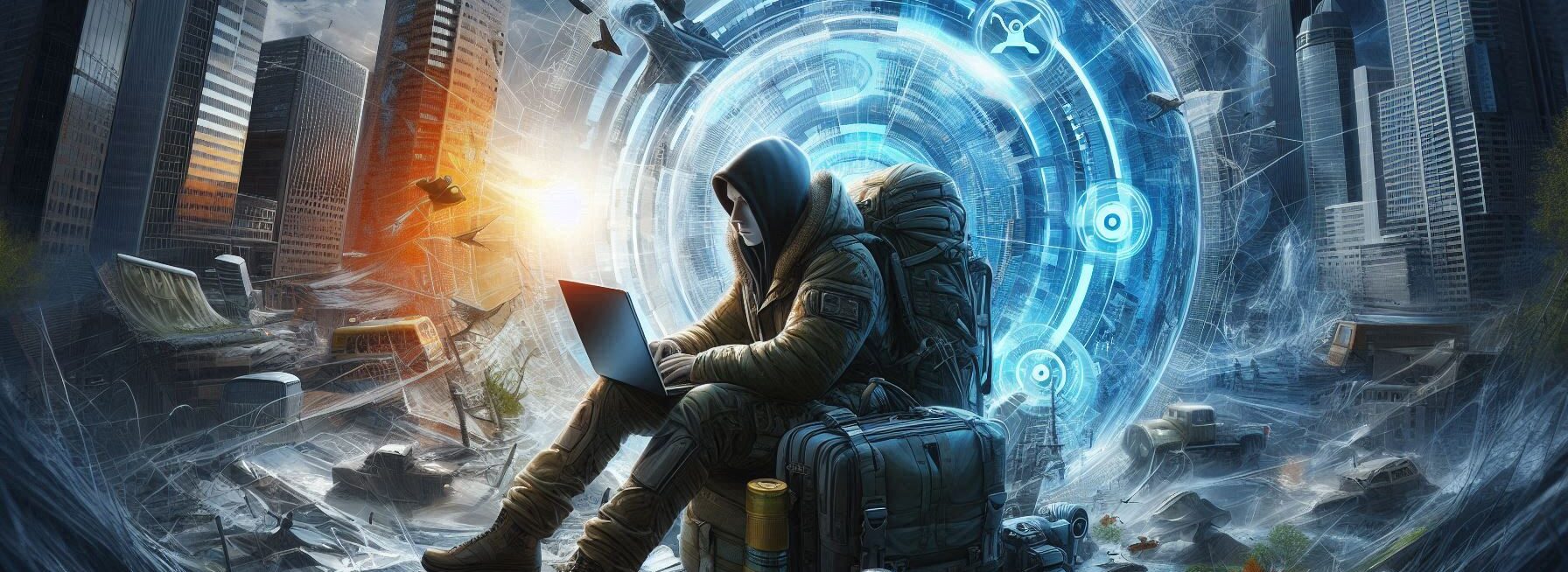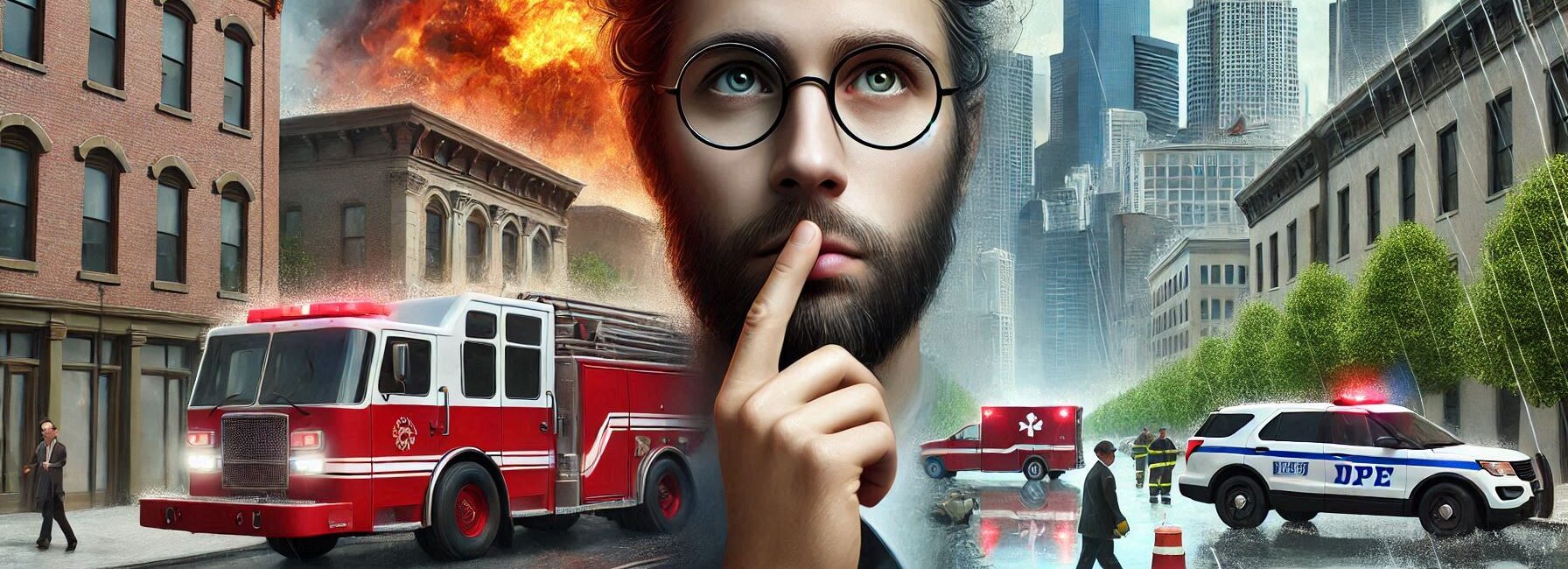Last Updated on November 2, 2025 by Kevin Collier

Top Takeaways and Key Concepts
- Practice daily mindfulness to stay calm during unexpected emergencies.
- Visualize yourself handling crises to improve readiness and confidence.
- Develop problem-solving skills through creative outdoor challenges under pressure.
- Build resilience by reflecting on past mistakes and learning from them.
- Conduct realistic drills with friends or family to reinforce survival skills.
Picture this: you're outside, the sun is shining, and birds are singing. Then, all of a sudden, bam! There is a bear. Oh no! Before you run away like a cartoon character, let's talk about how to get your brain ready for bad times.
When things go crazy, having a calm mind is your best friend. It's like putting together an emergency kit with brains instead of simply snacks. Being able to react can significantly change the game.
Please Note: This post may contain affiliate links. If you click one of them, we may receive a commission at no extra cost to you. As an Amazon Associate, I earn from qualifying purchases.
In this method, You are becoming ready for the unexpected when you practice calming yourself down or planning ahead. It's a bit like practicing lines for a play at school. You could be worried, but you can do well if you practice.
What if you took a few minutes every day? Just sit still, take a deep breath, and picture what's around you. Think about that bear coming out. Picture what you would do. You might slowly back away or make some noise to scare it away. Those short cognitive games can really help.
Then there's training for the whole team. If you're going hiking with companions, practice simple signs. Without yelling, a whistle or hand gestures can keep everyone safe and up to date. It's like being spies in the wild!
Telling funny anecdotes about camping trips or seeing animals will help you feel more sure of yourself. Knowing that you and your pals will always be there for each other? That's it.
So, every little amount of practice helps. Take a minute or two to get your thoughts ready for those “uh-oh” times. They might show up out of the blue, but you'll be ready! And who knows? You might even find it funny later when you have some goodies.
Understanding Stress Responses: Fight or Flight… or Freeze?
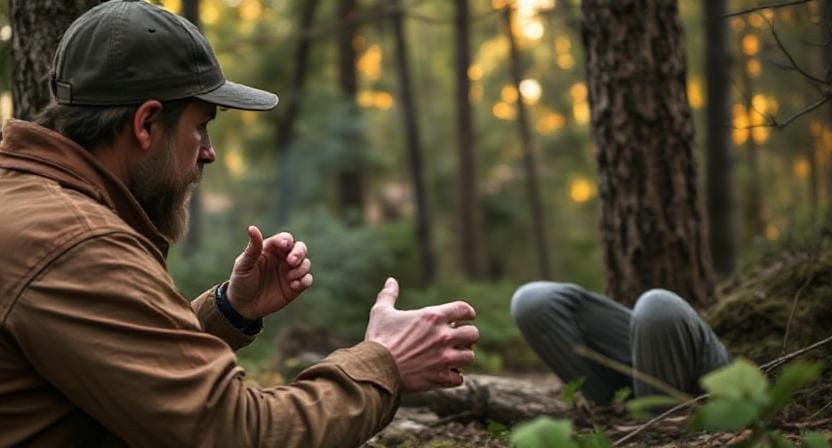
*** Shop for Survival Gear - Tools - Kits ***
Survival Gear - Bags and Backpacks - Knives - Boots/Footwear - Communication
Outdoor Cooking - Gloves - Hydration - Dry Boxes - Water Filtration Systems
Tents - Sleeping Bags - First Aid Kits - Multi-Tools - Flashlights - Fire Starters
Navigation - Survival Food - Night Vision - Headlamps - Stun Guns - Binoculars
First, let's talk about what happens when we get stressed. You may have heard of the “fight or flight” reflex. This is your body's way of yelling, “Hey! Danger!” and determining whether to punch a bear (not a good idea) or run away crying like a baby who lost their favorite toy.
There is also the freeze response, which is interesting. I saw this happen once on a camping trip when my friend saw a snake and froze in place. He literally stood still, as if he were trying out for a statue role that would win an award.
It was funny at the moment, but freezing may be dangerous if you're not careful! Knowing these answers might help you figure out what could happen in an emergency and how to deal with it.
So here's the big surprise: you can get from “Oh no!” to “Let's think this through” by training yourself to stay calm instead of panicking. Mindfulness practices can help with this. For example, you could try meditating while sitting cross-legged on the floor of your living room (but not falling asleep).
Mental Visualization: Imagine Yourself Living

Next is mental imagery, which is a fancy way of saying that you should picture yourself doing well in stressful situations. Think of it like practicing for a play in which you are the hero fending off zombies or bears, depending on what you like.
I spent my evenings imagining myself on my first solo hike, which felt scarier than going to prom. I was worried about getting lost on tough routes and having to deal with sudden rainstorms without losing my cool or my snacks.
The more clearly you picture situations and work out solutions in your head, the more ready you'll be when they happen.
To put this into action, choose a quiet time and visualize yourself encountering different problems, such getting lost in the woods or having to deal with an unexpected storm while camping. Picture yourself making good choices, like hiding behind that giant tree instead of behind a bush full with poison ivy!
How to Improve Your Problem-Solving Skills: Be Like MacGyver
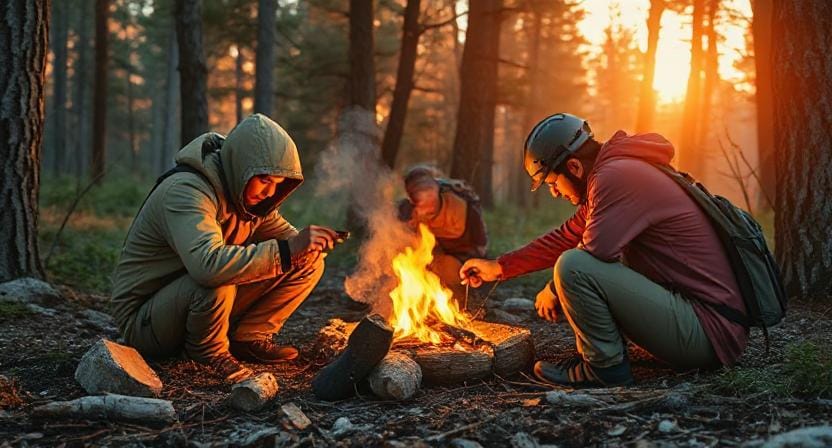
Let's speak about how to solve problems now that we know that every good survivor can think on their feet. Do you remember the TV show “MacGyver”? He could make anything out of duct tape and chewing gum! I'm not saying you should always have chewing gum with you (unless it's mint-flavored), but learning to think quickly will help you in tough situations.
I once went camping in the rain without any waterproof clothing. Talk about a rookie mistake!
Instead of crying over the wet marshmallows (which I really wanted to do), I quickly looked around for things like branches and tarps to form a temporary cover. I was able to stay dry until the rain stopped by using my MacGyver skills.
To improve your problem-solving skills even more, try doing outdoor activities that put your imagination to the test when you're under pressure, like building shelters or starting fires without matches. Every assignment you finish will make you feel more confident when you have to deal with real-life problems.
Building Resilience: Getting Back Up Like a Rubber Band
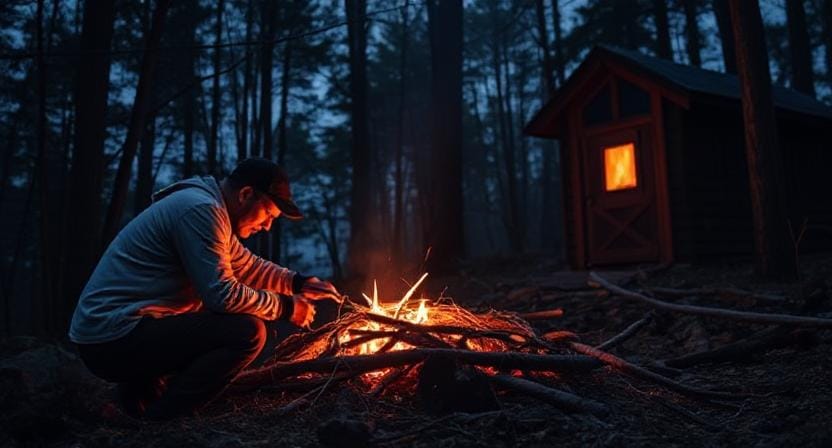
Another important trait for survival is resilience, which means being able to get back on your feet once anything goes wrong. Think about rubber bands. They stretch, but they always go back to their original shape until someone throws them across the room (which I've been known to do).
Life throws us curveballs all the time; sometimes it feels like playing dodgeball against professional athletes with water balloons full of frigid water! When everything seems too much, such when terrible weather ruins your camping plans or you realize you've missed important supplies, being able to adjust is really important.
Thinking on times in the past when things didn't go as planned but came out okay in the end is a good way to build resilience.
Do you remember the moment your tent fell down in the wind but somehow transformed into a night under the stars that you'll never forget? Accepting our shortcomings gives us chances to learn and makes us more determined.
Practice Makes Perfect: Act Out Real-Life Situations
Finally, and maybe most crucially, you should practice real-life situations often so that they become second nature. You need to practice to learn how to ride a bike (and perhaps get a few scrapes on your knees). The same goes for getting ready for crises.
Think about getting together with friends or family to do fake drills that focus on different survival skills, such how to rapidly set up camp under duress or how to help someone who is hurt while hiking nearby (without turning into headless chickens).
These simulations assist you remember what you've learnt and make you feel a lot more confident.
You can learn how to cooperate together in real-life situations by making up scenarios where everyone has to work together to reach a common goal, like building shelters with limited resources.
Frequently Asked Questions
Why is mindfulness useful in survival situations?
Mindfulness reduces panic and helps keep your thinking clear, increasing your ability to make logical decisions under pressure.
How can visualization improve survival response?
Visualizing challenges and successful reactions builds confidence and prepares your mind to take calm action when real emergencies occur.
What activities strengthen problem-solving skills?
Outdoor challenges such as shelter building, fire starting, or navigating unknown terrain improve thinking speed and adaptability.
How does reflecting on past mistakes help?
Reviewing previous errors teaches lessons, boosts experience, and builds resilience so setbacks feel less overwhelming in the future.
Can resilience really be trained?
Yes, small repeated exposures to stress, learning, and recovery can strengthen mental flexibility like a muscle over time.
Do group drills matter for survival training?
Practicing realistic scenarios with others reinforces teamwork, communication, and skill memory in high-stress conditions.
How much daily mental practice is recommended?
Even a few minutes each day of mindfulness, visualization, or reflection can meaningfully improve mental readiness.
Suggested Resources:
Survival Skills 101
https://www.survivalskills101.com
The Psychology of Survival
https://www.psychologyofsurvival.com
Mindfulness Techniques
https://www.mindful.org/mindfulness-techniques/
Emergency Preparedness Tips
https://www.ready.gov/emergency-preparedness-tips

Kevin Collier is a seasoned survivalist and expert in prepping and homesteading, contributing to WiseSurvive.com. With a deep-rooted passion for self-sufficiency and outdoor survival skills, Kevin shares practical advice, strategies, and resources to help individuals prepare for any challenge. His informative articles cover a range of topics, from essential survival techniques to sustainable living practices, empowering readers to thrive in any situation. Whether you're a novice or a seasoned prepper, Kevin's insights will inspire you to take charge of your readiness and build resilience for the future.



